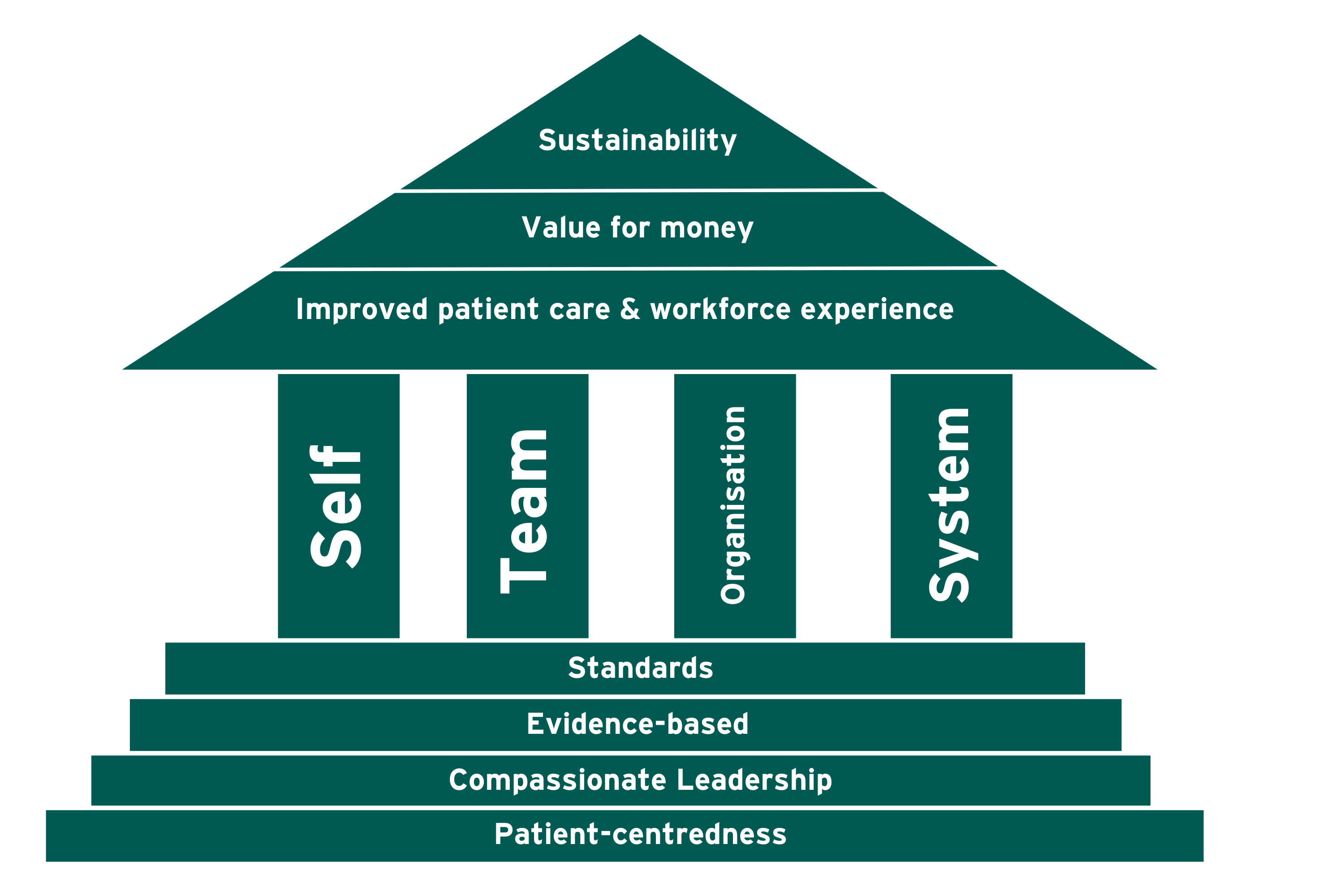We are working to establish our role as the professional home for clinical leadership and management whilst promoting excellence in leadership on behalf of all doctors in public health, mental health, dentistry, primary and secondary care, from medical student to chief executives, and for all UK healthcare providers and healthcare related organisations in all sectors.
Values
Image

Our ethos
We believe in creating a positive organisational culture which leads to good clinical leadership and management in order to drive forward improved healthcare and patient outcome. Our members define the organisation and their views are reflected in all aspects of our work. We represent and reflect the diverse communities in which we work and promote equality of opportunity.
We adopt an inclusive approach and encourage and support participation in leadership from all representative groups and disciplines as we believe leadership occurs at all professional levels. We will show integrity and we will have an honest, open-minded and transparent approach to our work. The organisation will be lean and efficient to maximise the value it offers.
Image

Standards
We inspire current and aspiring clinical leaders and the wider healthcare sector to achieve excellence in patient care. Faculty of Medical Leadership and Management defines, refines and maintain the standards of excellence in leadership and management for doctors. We work to ensure these standards are embedded in the education and training of all current and future doctors.
In pursuit of the highest principles and to strengthen our standards, we are committed to a healthy partnership with our parent medical royal colleges and faculties, the Academy of Medical Royal Colleges, medical schools, deaneries, the General Medical Council and all UK healthcare systems and organisations and peer organisations internationally.
Furthermore, we promote and support responsible officers in their development and the discharge of their statutory responsibilities with regard to revalidation of clinical leaders and managers.
Policy
FMLM believe that more needs to be done by pan-UK administrations to enable health leaders to truly lead. In order to do this we believe that the below policies need to be enacted.
- Develop and promote policies that support the continuous development of leadership skills among healthcare professionals at all levels, from frontline staff to senior executives.
- Ensure all consultancies reviewing management practices of NHS organisations have relevant clinical experience on their project team and adopt FMLM standards.
- Recognise and integrate clinical leadership as a core competency in healthcare systems, policies and practices.
- Reduce variation in quality of leaders by standardising clinical leadership training across healthcare, with accreditation supplied by a single, centralised, independent provider – a College of Clinical Leadership.
- Embed leadership training as part of all clinically related undergraduate degree courses.
- With the input of clinical leaders, develop and consult on a regulatory framework that strengthens the accountability of managers and enhances patient safety.
- Create an independent regulator to ensure standards of competence, education and skills are met and maintain a register of licensed clinical managers and leaders.
- Invest in staff development and ring-fence training budgets.
- Review and streamline managerial/leadership targets to reduce bureaucratic burden, freeing up time to deliver innovation, transformation and improved productivity; let leaders lead.
- Challenge the narrative of the NHS having too many managers and end ‘manager bashing’ to improve trust; explain their role and importance to the public via a dedicated communications programme.
- Create more inclusive pathways to leadership, and ensure equal opportunities for professional development, particularly for staff from minority backgrounds.
- Deliver on the wider recommendations of the Kark and Messenger reviews, to help foster an inclusive, values-based environment of support, collaboration and continuing professional development across healthcare.
- CQC to adopt FMLM standards for leadership as part of its organisational assessments of how ‘well-led’ a Trust is.
